Malcolm Washington’s feature-length directorial debut, ‘The Piano Lesson,’ is a historical drama film that scrutinizes the role of legacy and the past in building one’s current reality. The story takes place in Pittsburg in 1936 and centers around a family heirloom piano that rests in Doaker Charles’ household. In the wake of the Great Depression, the family is torn up over what to do with the family piano. Young Boy Willie Charles wants to sell the instrument and use the profits to buy the land that saw the enslavement of their ancestors. On the other hand, his sister, Berniece, wants to hold onto the piano—which holds the family’s history through carvings left behind by their ancestors—as a monument of the Charles family’s past.
As such, the Charles family finds themselves in a predicament, struggling between opposing ideals while the ghost of their ancestral aggressor, Sutter—the land’s former white master—haunts the family’s present. Immersing the viewers in the life of an African-American family as they wrestle with their past, the Netflix musical pens an authentic and insightful tale about confronting one’s bygone days.
The Piano Lesson is an Adaptation of August Wilson’s Pulitzer Prize-winning Play
‘The Piano Lesson’ carries an intriguing and enriching history behind its origins. The film is a cinematic adaption of August Wilson’s acclaimed play of the same name, first produced in 1987. It was the fourth installment in the beloved playwright’s ‘The Pittsburgh Cycle,’ a collection of ten plays wherein Wilson explores the African-American experiences in the 20th century. ‘The Piano Lesson,’ which went on to win a Pulitzer Award—the second of the playwright’s career—was a work of fiction originating entirely from Wilson’s imagination.
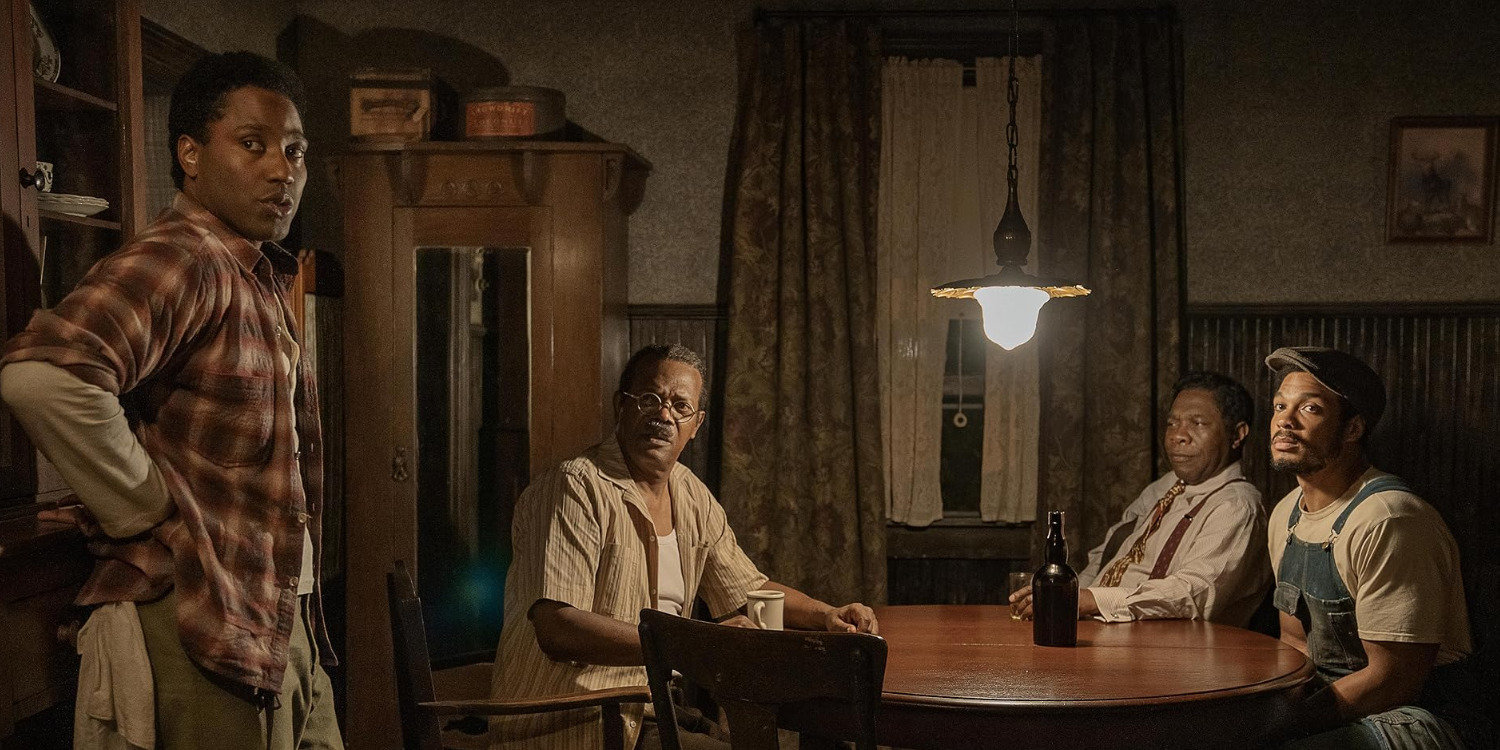
Yet, the play held on to reality through its nuanced thematic explorations. The play, revolving around the Charles family and their dispute over the fate of their ancestral piano, tackles issues prevalent in the African-American experience. The story explores the lingering generational trauma of slavery and asks questions about the haunting nature of legacy and its purpose. As a result, while the tale offers an authentic look into the complex reality of an African-American story, it also charts a tale about family, inheritance, and healing that inevitably becomes universally resonant.
Although the play has been adapted for the screen in the past, in 1995, as a TV movie under Hallmark Hall of Fame, Malcolm Washington’s film brings the tale to the silver screen for the first time. Malcolm Washington’s father, Denzel Washington, who is a producer on the project, sports a special attachment to Wilson’s work. In the aftermath of the playwright’s death, his estate reportedly reached out to Denzel Washington to take the reigns in adapting his stories for the screen. Thus, as the actor’s son undertakes the responsibility of cinematically translating Wilson’s work, he maintains a dedication to remaining authentic to the original work.
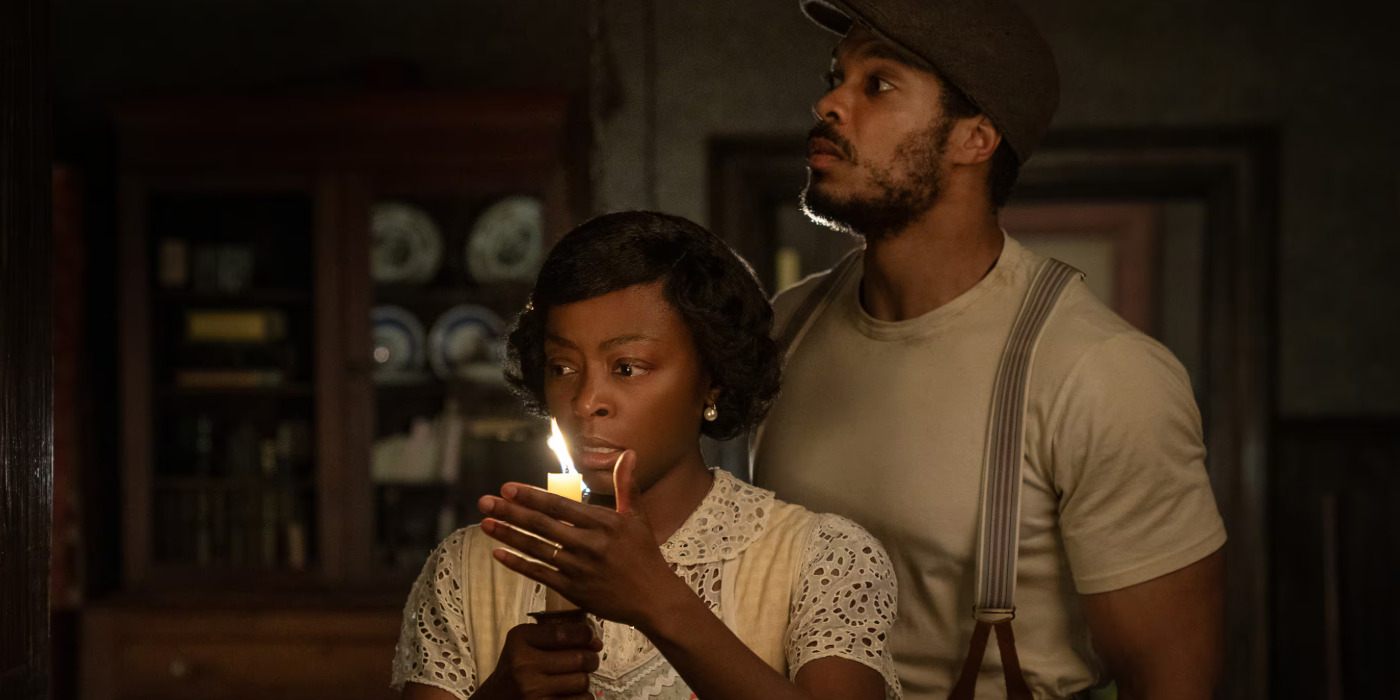
Therefore, Malcolm Washington and his co-screenwriter Virgil Williams dedicated themselves to earnestly studying Wilson’s play—becoming students of his art in some ways. Naturally, the writers gradually formed a deep understanding and relatability with the narrative and its characters. As such, their appreciation and compassion for the story resulted in a faithful adaptation that doesn’t stray far from Wilson’s work in terms of significance. While this renders the film a fictional work, much like its source material, it also ensures that its historical exploration of the period and its’ socio-political landscape remains realistic.
August Wilson Found Inspiration For The Piano Lesson in Romare Bearden’s Art
August Wilson penned ‘The Piano Lesson’ as a fictional story without any real-life counterparts to characters or instances serving as inspirations. Even so, the playwright found inspiration in other channels that ultimately shaped his play’s identity in crucial ways.
The 1983 print artwork ‘The Piano Lesson (Homage to Mary Lou)’ by Romare Bearden actually inspired Wilson’s 1987 play. Inspired by French Modernist Henri Matisse’s work, the art depicts a Southern parlor scene. In the print, a teacher hovers over the student who is devotedly sat by a piano.
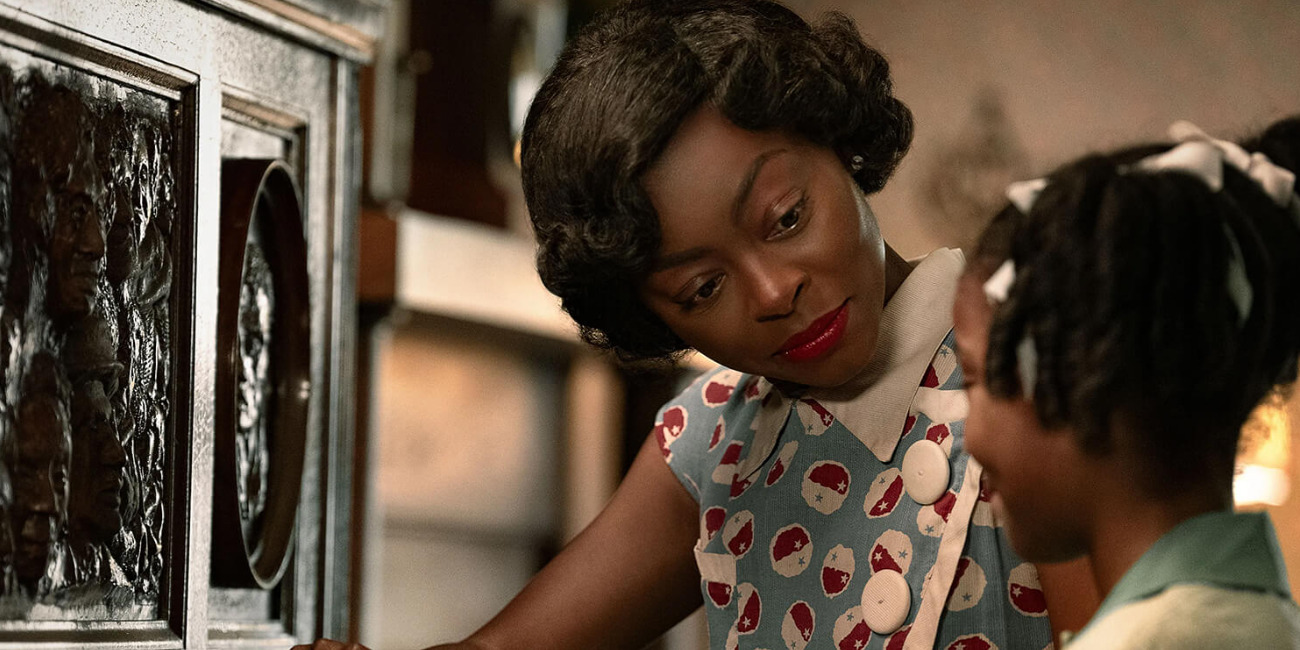
In his artwork, Bearden utilized his own experiences as a Black man from the South to present a social commentary through his distinct collage style. With ‘The Piano Lesson,’ the artist explores the legacy of the music genre Jazz as passed down from an individual of an older generation to a younger pupil. Thus, the print examines the concepts of ambitions and aspirations for a more fantastic future as it’s being fuelled and molded for the forebearers of expansive predecessors. According to Patti Hartigan, Wilson’s friend and the author of his biography, ‘August Wilson: A Life,’ the playwright was at once captivated by the artwork and found immense inspiration in it.
The Piano Lesson Scrutinizes the Significance of Legacy
In the 1980s, August Wilson translated the emotions incited by Romare Bearden’s artwork and birthed his play ‘The Piano Lesson.’ Similarly, once Malcolm Washington faced the task of adapting the former’s work for the screen, he deliberated the concepts and themes of his work to ensure he grasped them through an authentic lens. Fortunately, the novice filmmaker had recently found himself grappling with similar questions about the past and the legacy the Charles family’s narrative so efficiently encapsulates.
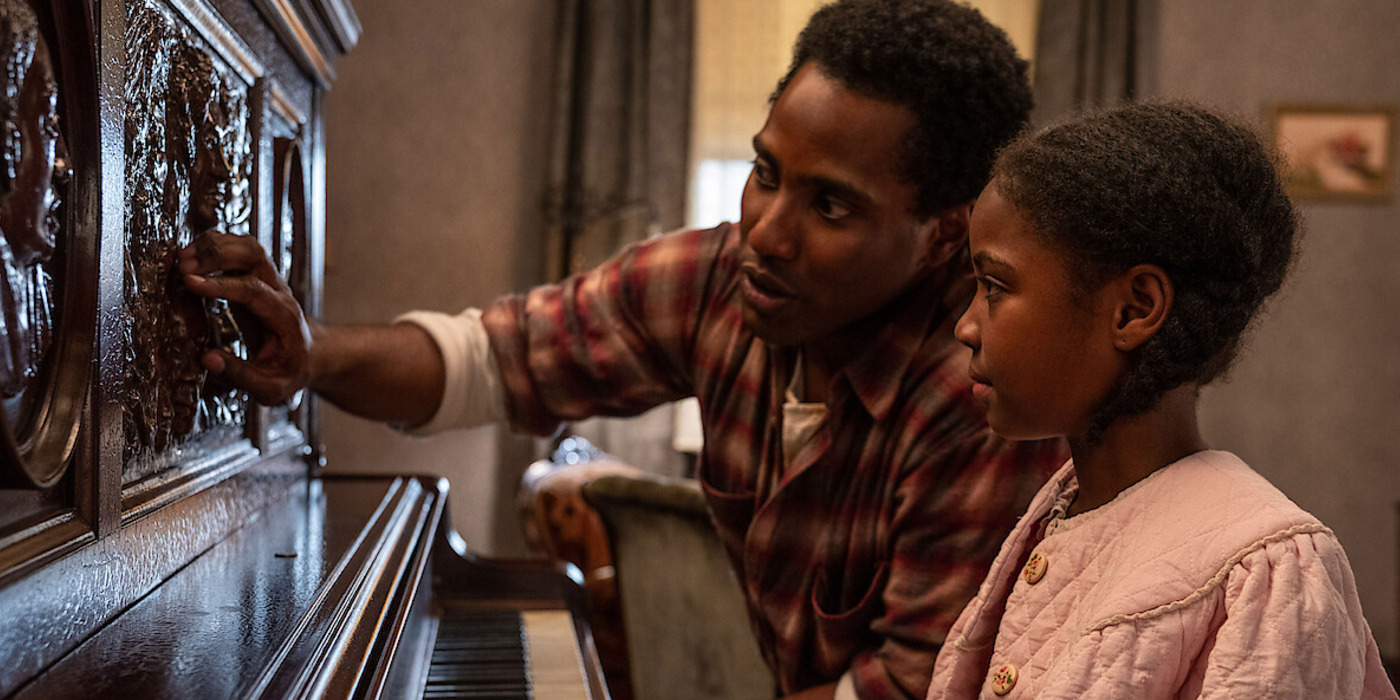
“When I started reading it, it was funny and exciting, and then I got deeper into it, and there were these really big questions being posed about questions of legacy,” Washington told Deadline in a conversation about the early stages of the film’s development. “That’s something that always concerned me: our ancestors and what they’ve done to give us the space and opportunity to make our lives possible, sometimes from beyond the grave and so on. So, I snapped into focus and wrestled with these types of questions.”
Thus, ‘The Piano Lesson’ remains an authentic adaptation of Wilson’s work, bringing the Charles family from the stage to the screen. Interestingly enough, amidst all these conversations about legacy, many actors—including Samuel L. Jackson, John David Washington, Ray Fisher, and Michael Potts—reprise their roles from previous stage productions. Ultimately, the film’s exploration of universal concepts revolving around the past and its inherited endowments cements the story’s ability to resonate and relate.
Read More: Where Was Netflix’s The Piano Lesson Filmed?

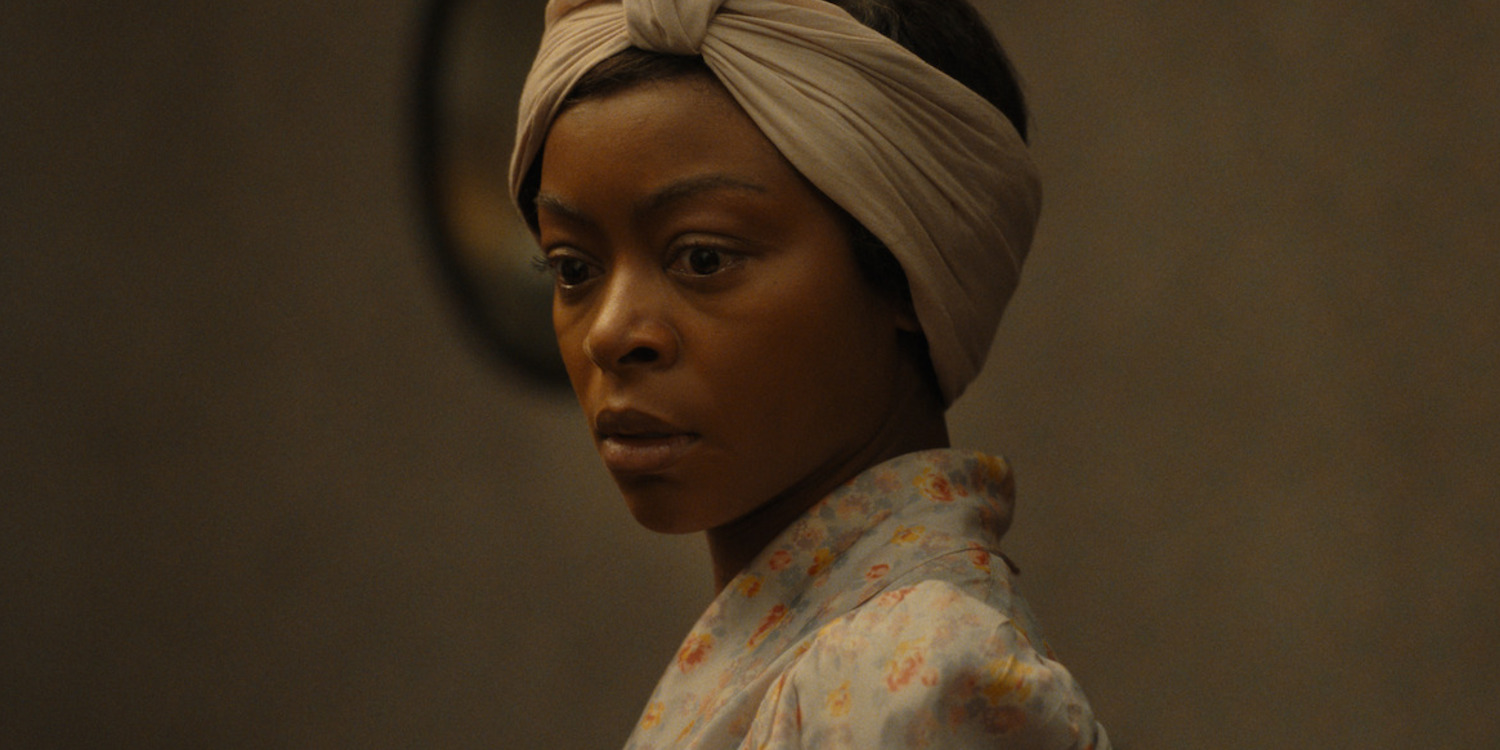
You must be logged in to post a comment.